
by GI Research Foundation | Jun 9, 2023 | 2023 June Newsletter, GIRF in the News, Research and Discovery, University of Chicago Medicine
Founded in 1997, the GI Research Foundation’s Associates Board is made up of professional volunteers and emerging leaders united by determination and dedication to educating our communities on the prevention, treatment, and cures for digestive diseases. In...
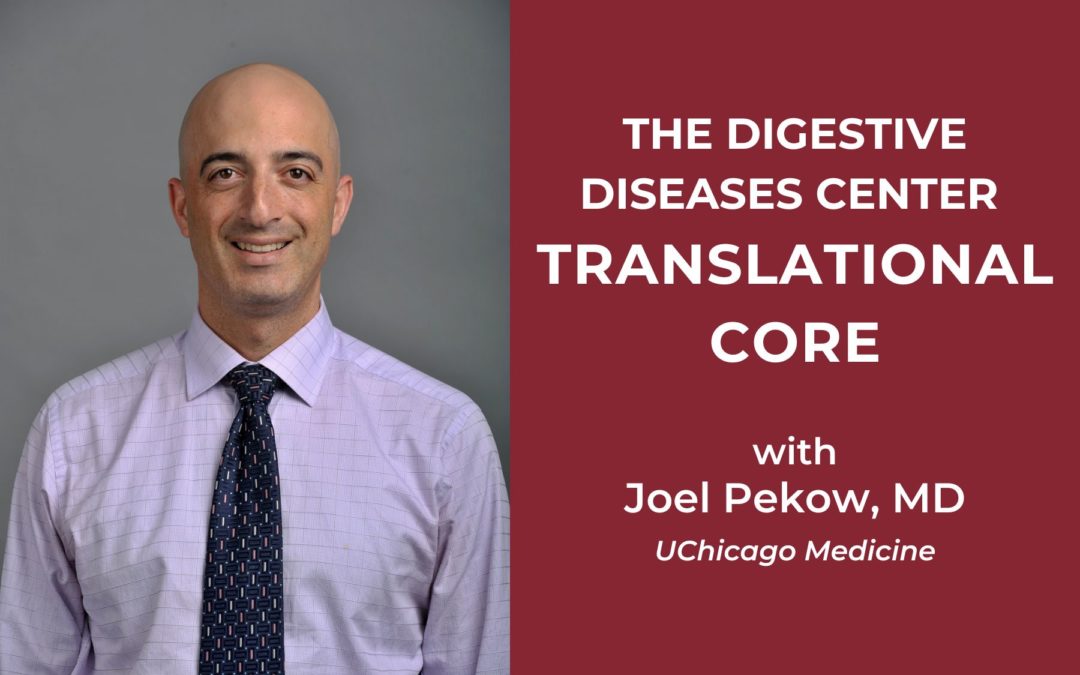
by Anna Gomberg | Apr 4, 2023 | 2023 April Newsletter, Newsletter, Research and Discovery, University of Chicago Medicine
One of the most important and enduring contributions of the GI Research Foundation (the Foundation) may also be one of the least well understood. For a decade, the Foundation has supported the Digestive Diseases Center (DDC) Translational Core, an engine that drives...
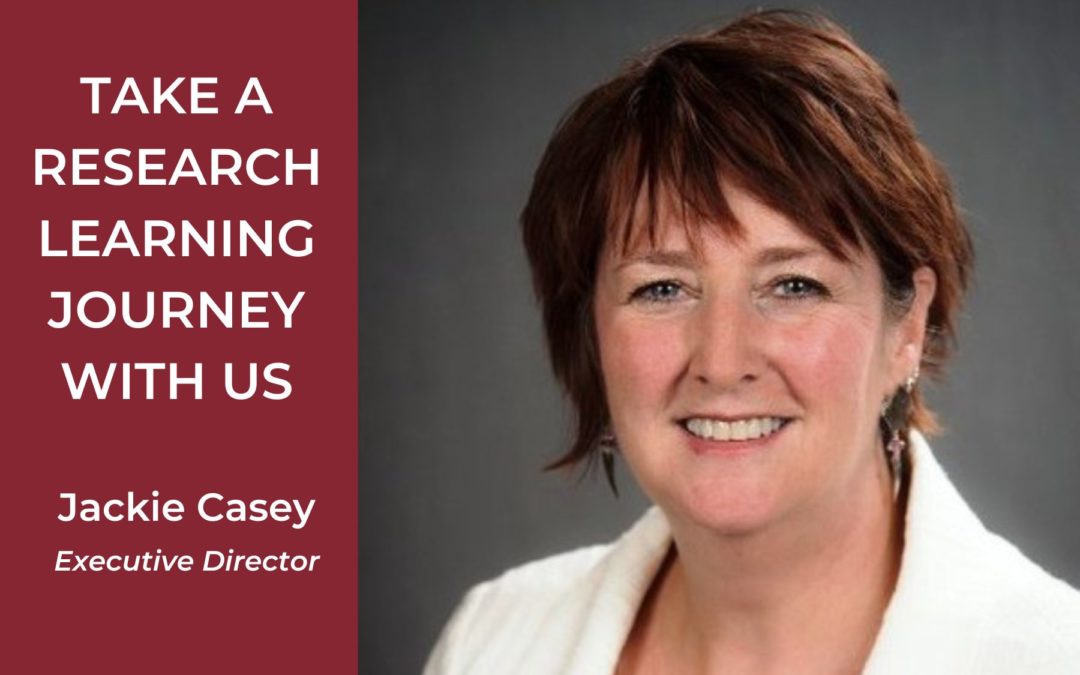
by Jackie Casey | Dec 1, 2022 | Newsletter, Research and Discovery
Ever since becoming the Executive Director of the GastroIntestinal Research Foundation (Foundation), all my Zoom calls with my family start with a question from my brother with Crohn’s, “Have you found a cure yet?” While I can’t answer yes, I can tell him about the...

by Jackie Casey | Sep 29, 2022 | GIRF in the News, Research and Discovery
The GI Research Foundation is proud to announce the CA CURE initiative, made possible through a historic, multi-million dollar contribution generously gifted by an anonymous donor. The Committee to AdvanCe the Understanding of High-Risk GI CancErs (CA CURE) is...
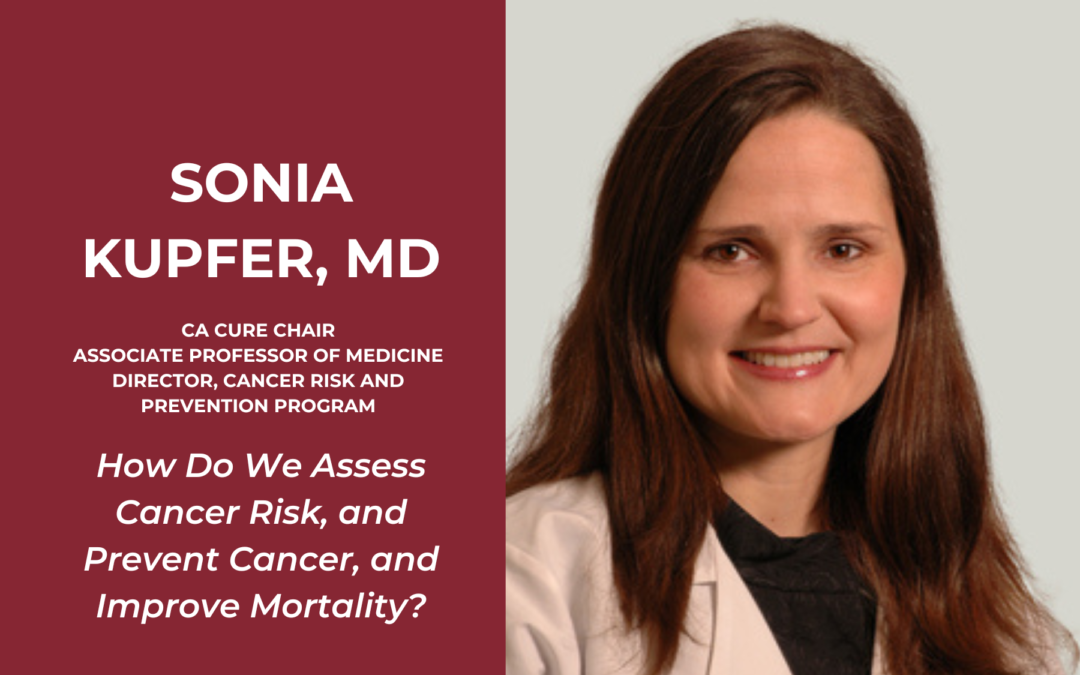
by Anna Gomberg | Sep 29, 2022 | Newsletter, Research and Discovery, University of Chicago Medicine
Despite literal centuries of scientific inquiry, treating and curing cancer remains today’s foremost health research priority. In early 2022, the federal government even reignited the Cancer Moonshot program, working with the National Institutes of Health, including...
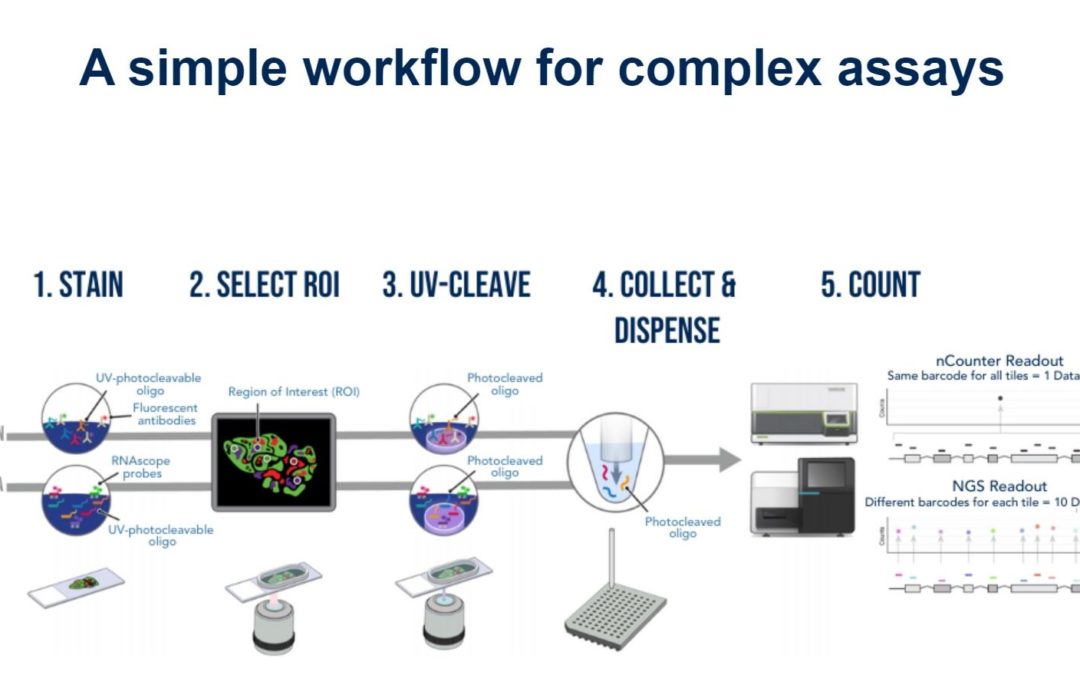
by Anna Gomberg | Jul 27, 2022 | GIRF Event, Newsletter, Research and Discovery
GeoMX Digital Spatial Profiler “Like being inside a tissue sample at a molecular level” Maps the spatial architecture of a cell, and how the cell interacts with surroundings Provides images to study how tissues and cells interact Produces 2D and 3D images Colorizes...
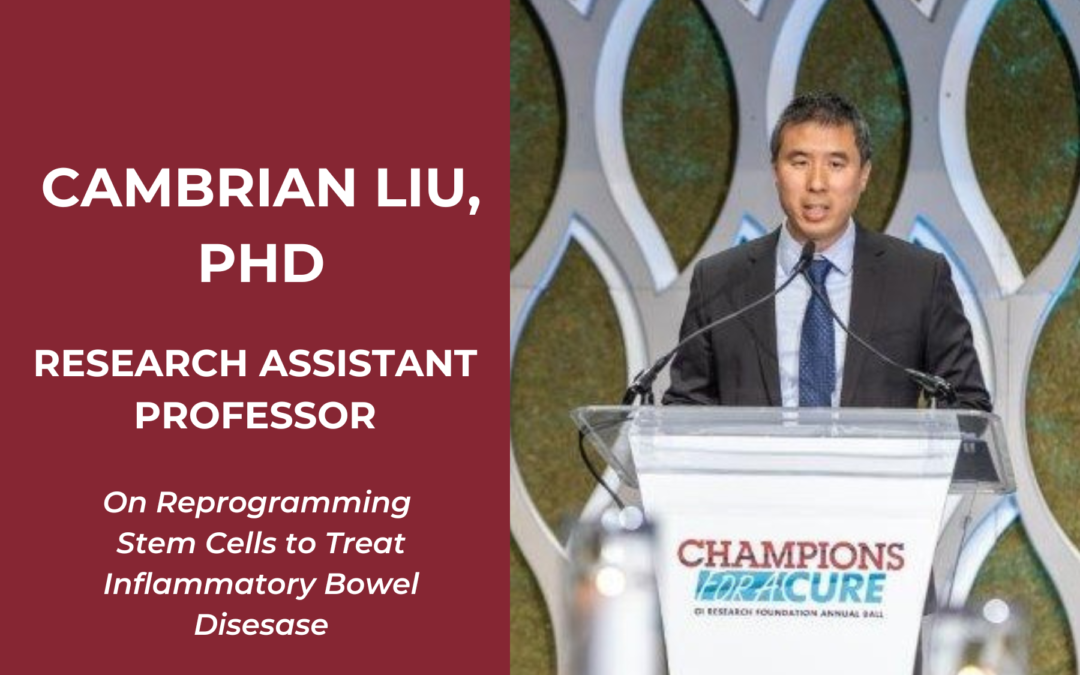
by Anna Gomberg | Jul 27, 2022 | Newsletter, Research and Discovery, University of Chicago Medicine
Cambrian Liu, PhD, a newer member of the UChicago Medicine faculty, described his innovative research in regenerative stem-cell treatments for IBD patients. “I believe that some patients respond to [IBD medications] because their bodies are able to tap into an innate...
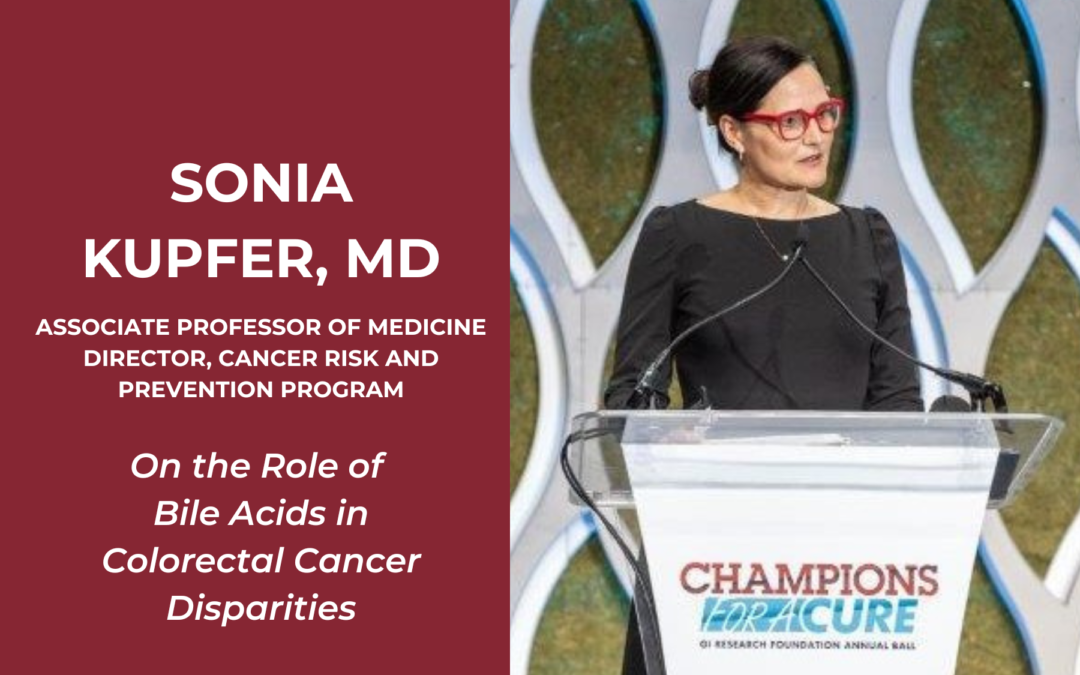
by Anna Gomberg | Jul 27, 2022 | Newsletter, Research and Discovery, University of Chicago Medicine
“In order to achieve our goal of reducing the burden of GI cancers, we practice and strive for early detection and personalized medicine. Personalized medicine moves away from one-size-fits-all approaches, and integrates knowledge about a person’s genetics, personal...
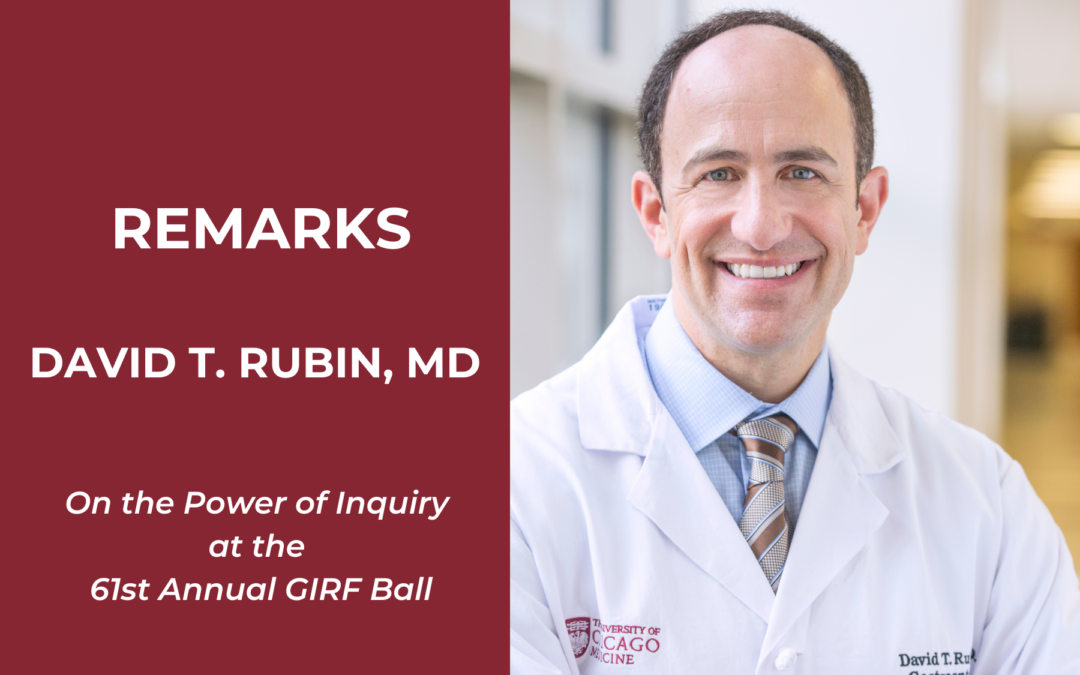
by Anna Gomberg | Jul 27, 2022 | GIRF Event, Newsletter, Research and Discovery, University of Chicago Medicine
Excerpted and adapted from remarks delivered on May 20, 2022 I start with a question that is asked every day in our clinics and by all of you: Why? A question for anyone who is diagnosed with a medical problem or a chronic condition. Why did this happen? Why now? Why...
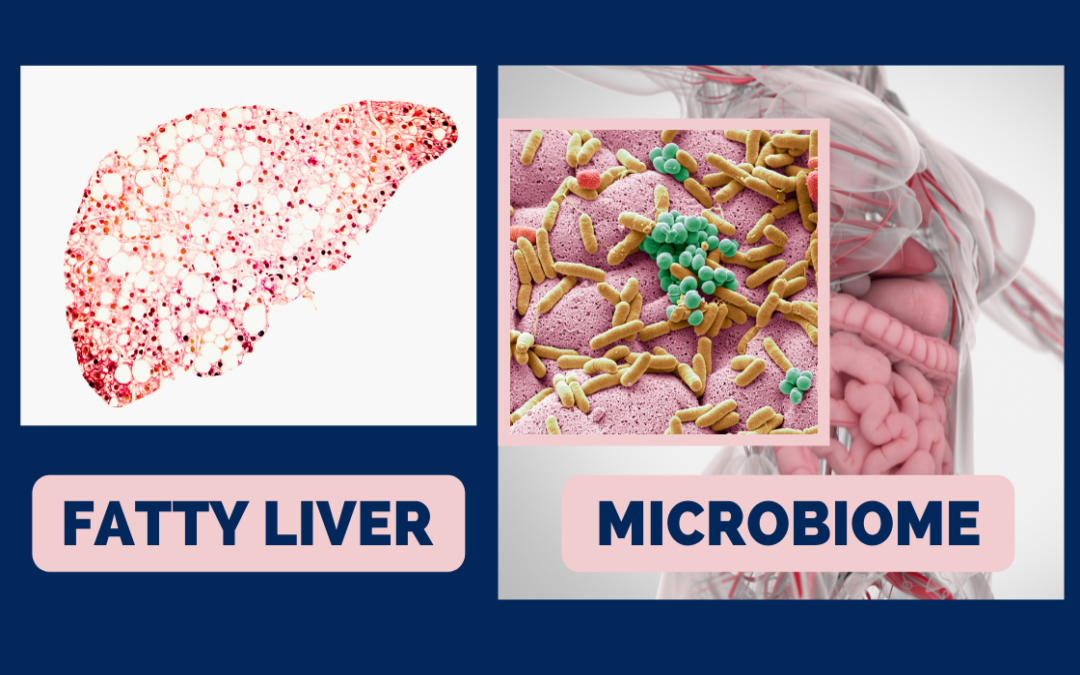
by Anna Gomberg | Jan 7, 2022 | Newsletter, Research and Discovery, University of Chicago Medicine
Scientific research is often referred to in science news as basic, translational, or clinical research. Each category of research plays a part in their mission to treat, educate, and cure digestive diseases. But the categories themselves may not be well understood by...
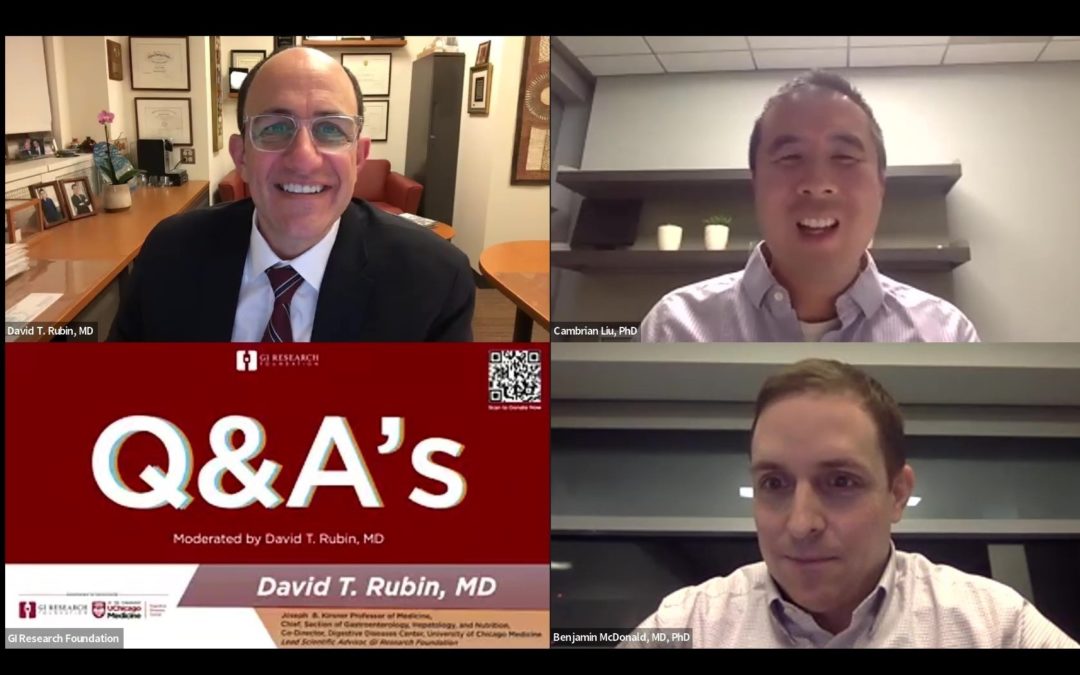
by GI Research Foundation | Dec 17, 2021 | GIRF Event, Newsletter, Research and Discovery, University of Chicago Medicine
On Thursday, December 2nd, more than one hundred GIRF supporters joined the University of Chicago Medicine Digestive Diseases Center online for the second presentation of Moving the Needle: An Update on GIRF’s Impact. Eight esteemed physician scientists shared latest...
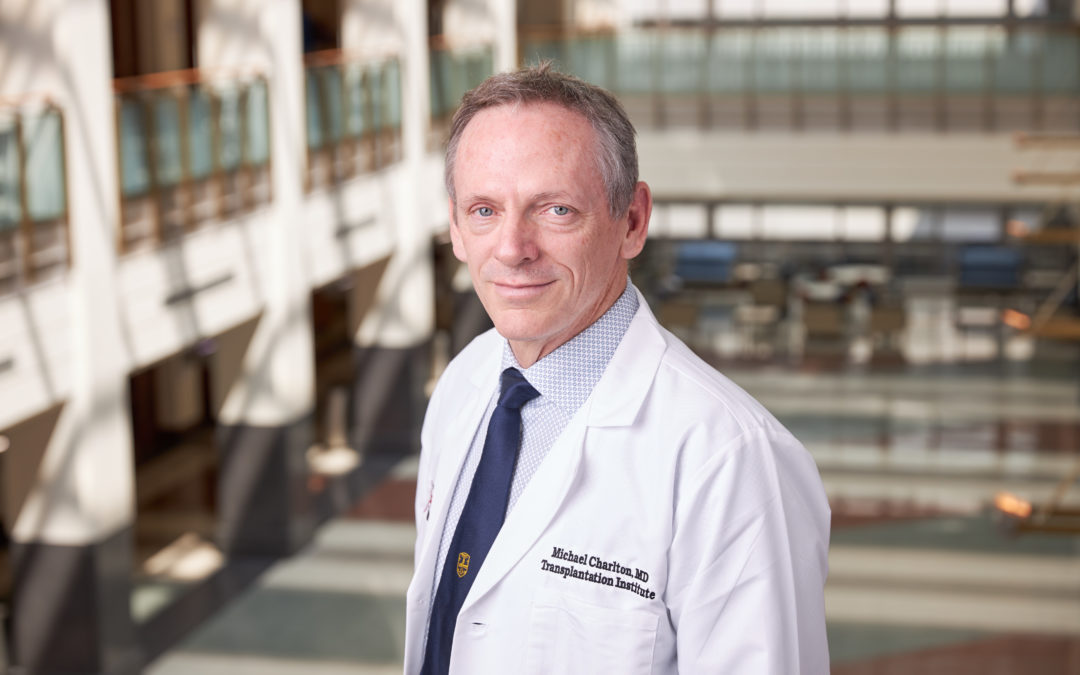
by Anna Gomberg | Nov 5, 2021 | GIRF Profiles, Newsletter, Research and Discovery, University of Chicago Medicine
“It’s important to me to prioritize research that has meaning for patients—work that will relieve patient suffering in reasonably short order,” says Michael Charlton, MBBS, Professor of Medicine. An international expert in the study and treatment of liver disease and...













